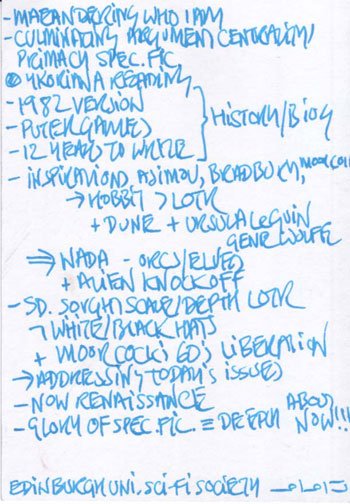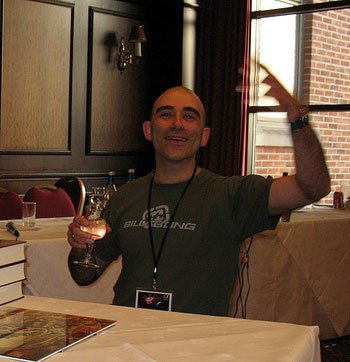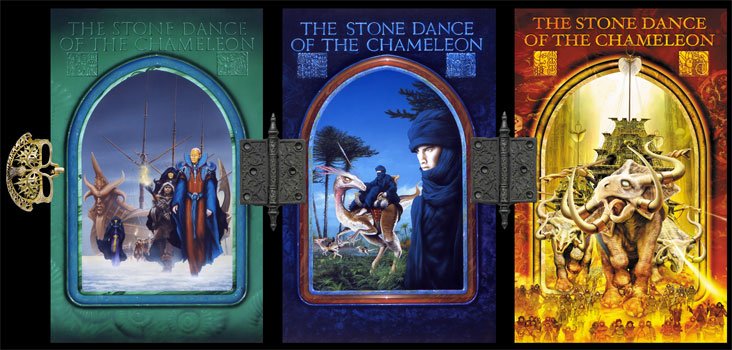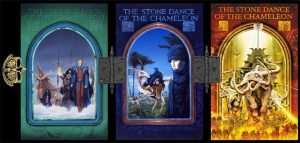University of Edinburgh Freshercon
It was only when I arrived outside the venue for this event that it occurred to me that I should have announced it here, on my blog. Not entirely sure why I didn’t. Apologies if you might have wanted to be there but weren’t.
This talk was specifically for freshers (students coming to university for the first time) with a view of encouraging them to join the university’s Science Fiction and Fantasy Society. It was well attended. I read some stuff from the various Stone Dance books and talked a little about who I was and how I had got into writing.
I talked about Tolkien and Moorcock: how the former inspired me by his method and approach; how the latter reinforced my own desires to escape from the tyranny exercised by ‘feudal Europe’ over fantasy. I talked about how dated Tolkien’s ‘black hat/ white hat’ characterisations can be – that though this polarized view of reality might perhaps be natural to people living through the two World Wars and who were still deeply influenced by Christian dualism, but that today I felt it necessary to take a more subtle, nuanced position. I touched on Dune, Ursula le Guin, Ray Bradbury and Gene Wolf. Then I moved to discussing the renaissance that seems to be occurring in speculative fiction generally.
Finally I launched into backing up a claim that speculative fiction could be seen to at the centre of our culture – and rightly so… My basic argument went like this. It seems to me that sci-fi explores possible evolutions of our cultural envelope in a cognitive projection from where we are now, on into the future… Fantasy on the other hand explores the inner world of our psyche. I talked here a bit about Jung’s archetypes and his notion of the collective unconsciousness – the deployment of which makes a story about everyone, and no one in particular. I pointed out that, in some ways, these two categories are pointless as there is much fantasy that appears to be sci-fi (Star Wars being an example) and sci-fi that may appear to be fantasy (the Stone Dance being an example…), that what really mattered was that the reader lay at the heart of these categories… perhaps even squeezed between their boundary as a fluid mix of her/his internal and external worlds… her/his present between the future and the familial past… I then railed a little at the ‘speculative’ ghetto… and pointed out the rather interesting fact that the only area in which fantasy/sci-fi is not a second class citizen is in children’s books: Harry Potter, Pullman, for example… is this not, perhaps, suggestive?: that in a world that is changing faster all the time, those who remain childlike longer – curious, learning, adapting – will cope the best… Thus it seemed to me that it is speculative fiction that best addresses the issues of the ‘now’ and can provide insight, guidance and, even, consolation.




